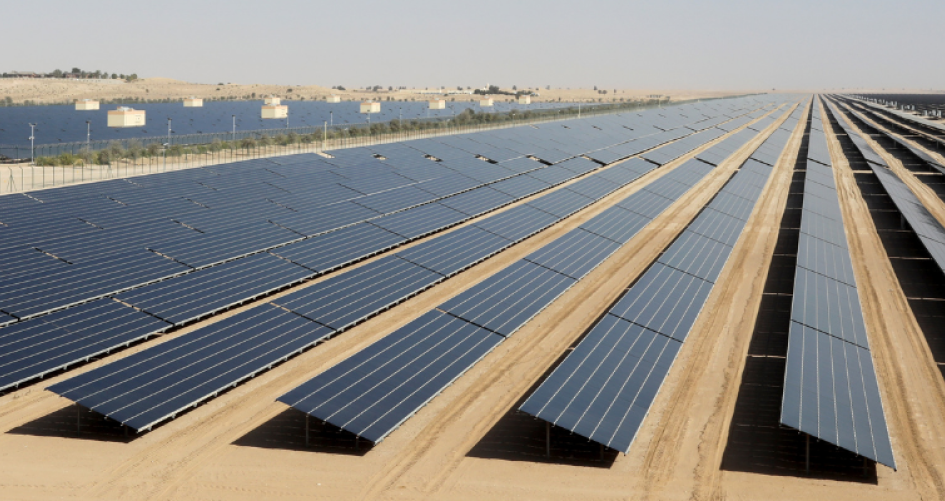UN Climate Change News, 7 October 2021 – The dates have been announced for the launch of the first-ever Middle East and North Africa Climate Week (MENACW) in 2022. The event, designed to kick off a new era of cooperation on climate in the region, will take place from 28 February to 3 March of next year. It will be hosted by the Government of the United Arab Emirates (UAE) with support from UN and other multilateral and national agencies and will take place at the Dubai Exhibition Center in Dubai.
The MENACW 2022 will showcase inspiring examples of action already happening in the region and around the world. Governments, private sector leaders, development organisations and civil society will engage in solution-oriented dialogues, find common ground and collaborate on climate action. The meeting will also build on the outcomes of this year’s UN Climate Change Conference COP26 in November.
Patricia Espinosa, UN Climate Change Executive Secretary, said: “I am looking forward to MENACW 2022 early next year. Whilst we must see strong outcomes at the global level at COP26 in Glasgow, climate action and collaboration must also be scaled up and swiftly taken forward regionally so we can achieve the temperature goals of the Paris Agreement and build resilience to climate change. Regional Climate Weeks are crucial to achieving the vision laid out in the Paris Agreement through coordinated and concerted efforts in all parts of the world.”
His Excellency Dr Abdullah Belhaif Al Nuaimi, UAE Minister of Climate Change and Environment, said: “As the world emerges from Covid-19, we have a prime opportunity to pursue a path of a green recovery and develop low-carbon and climate-resilient economies, and this important platform will help steer us onto the right course. We aim to inspire governments and organisations to join the global climate action movement created by the Paris Agreement and look forward to exchanging experiences in addressing climate issues with other countries in the region.”
H.E. Saeed Mohammed Ahmed Al Tayer, Chairman, World Green Economy Organization, said: “The United Arab Emirates is pleased to launch the first Middle East and North Africa Climate Week. Our region faces a challenging future and regional collaboration on climate change is a path towards enduring prosperity. Discussions at MENACW 2022 can help this region prepare for an uncertain future while taking steps to lower emissions and contributing to our global goals.”
MENACW 2022 will kick off the Regional Climate Weeks 2022, with meetings scheduled in Latin America and the Caribbean (LACCW 2022), Asia-Pacific (APCW 2022) and Africa (ACW 2022). More details on the programme of the full series of the Regional Climate Weeks 2022 are coming soon.
2021 has seen a year of successful engagement for the Regional Climate Weeks. Events in Latin America and the Caribbean, Asia-Pacific and Africa have convened more than 13,000 participants.
Key takeaways from all the Regional Climate Weeks 2021 will be presented to the COP President at COP26 and shared with ministers for consideration.
Visit www.regionalclimateweeks.org to explore the Regional Climate Weeks and see how they are making a difference in key regions.
About MEANCW 2022
MENACW 2022 is hosted by the UAE Ministry of Climate Change and Environment (MOCCAE), Dubai Electricity and Water Authority (DEWA) and the World Green Economy Organization (WGEO), and organised in collaboration with UN Climate Change, UN Development Programme, UN Environment Programme and the World Bank Group.
MORE INFORMATION
For media inquiries, contact UN Climate Change at press@unfccc.int or John Hay at jhay@unfccc.int
For more information, visit www.regionalclimateweeks.org
Join the conversation on social media using the hashtag #MenaClimateWeek
About the UNFCCC
With 197 Parties, the United Nations Framework Convention on Climate Change (UNFCCC) has near universal membership and is the parent treaty of the 2015 Paris Climate Change Agreement. The main aim of the Paris Agreement is to keep a global average temperature rise this century well below 2 degrees Celsius and to drive efforts to limit the temperature increase even further to 1.5 degrees Celsius above pre-industrial levels. The UNFCCC is also the parent treaty of the 1997 Kyoto Protocol. The ultimate objective of all agreements under the UNFCCC is to stabilize greenhouse gas concentrations in the atmosphere at a level that will prevent dangerous human interference with the climate system, in a time frame which allows ecosystems to adapt naturally and enables sustainable development.
